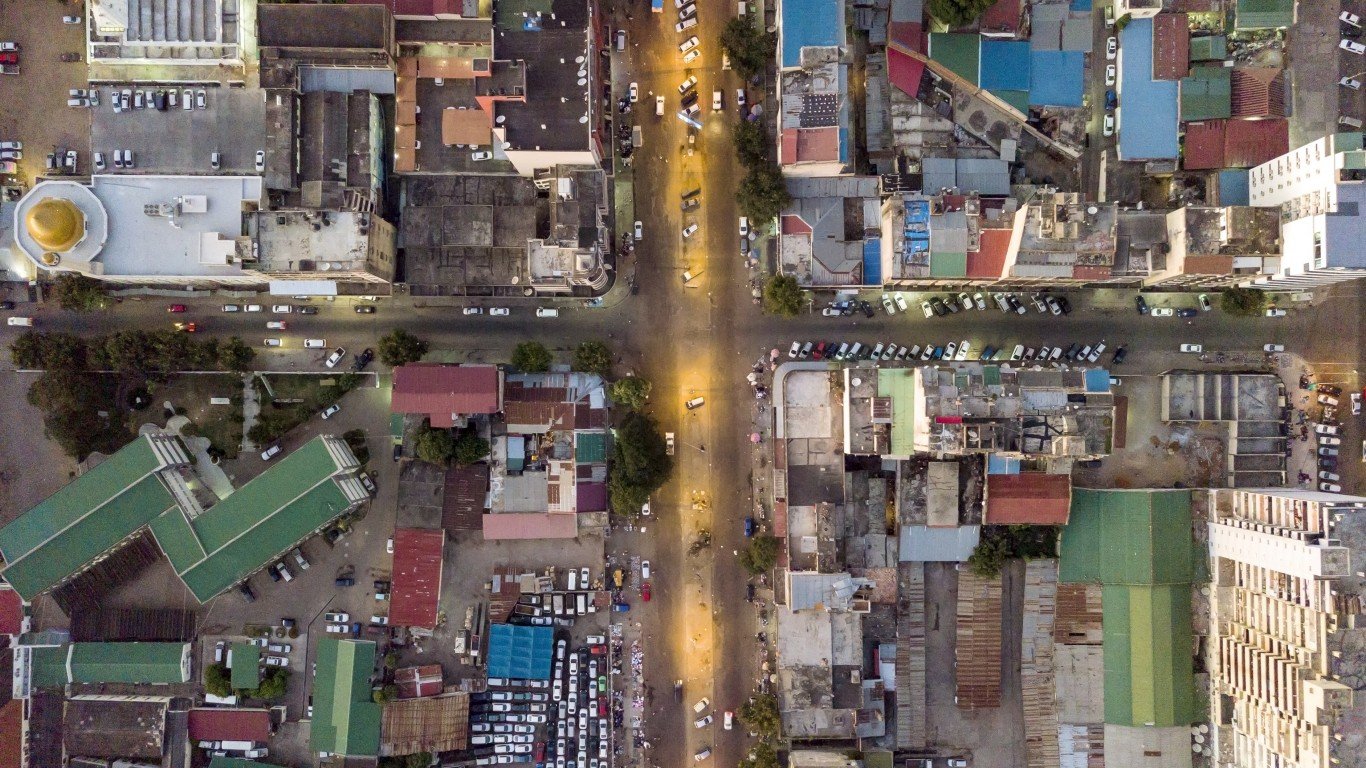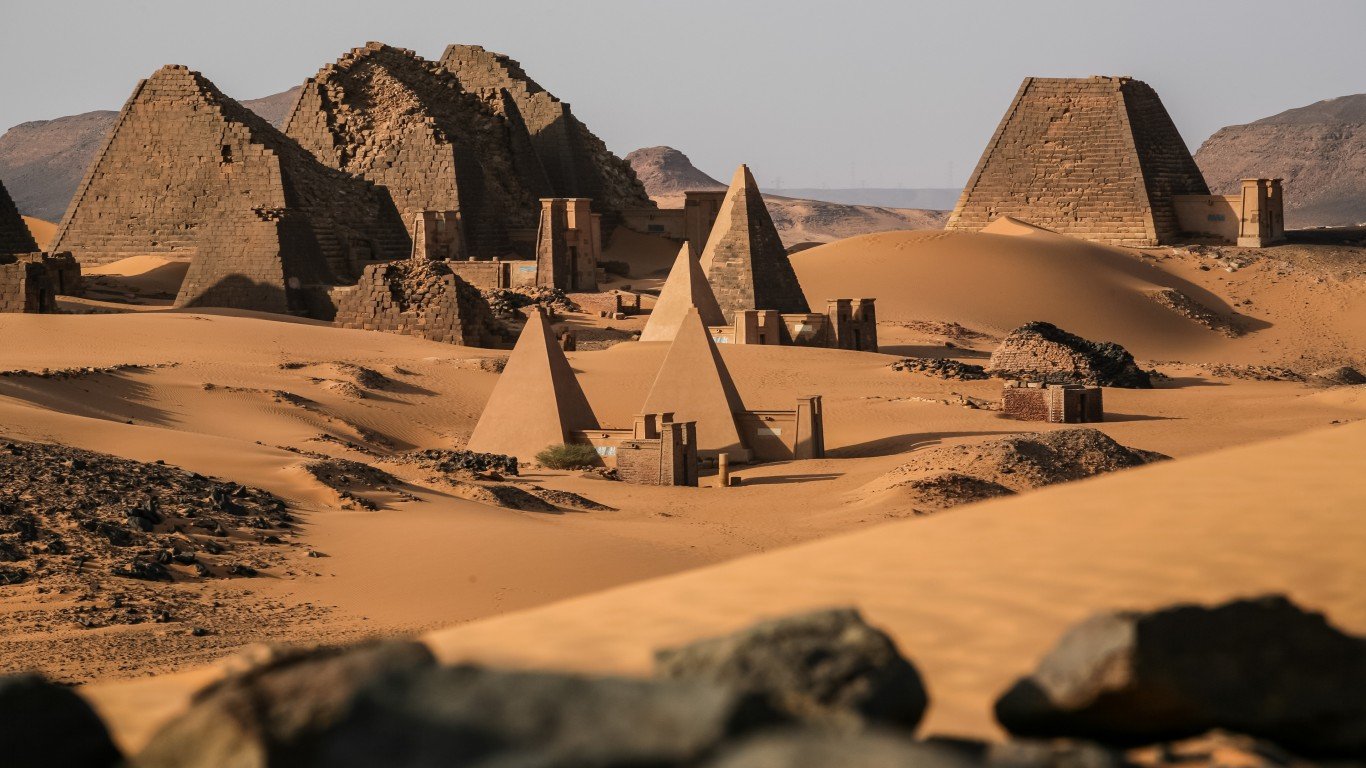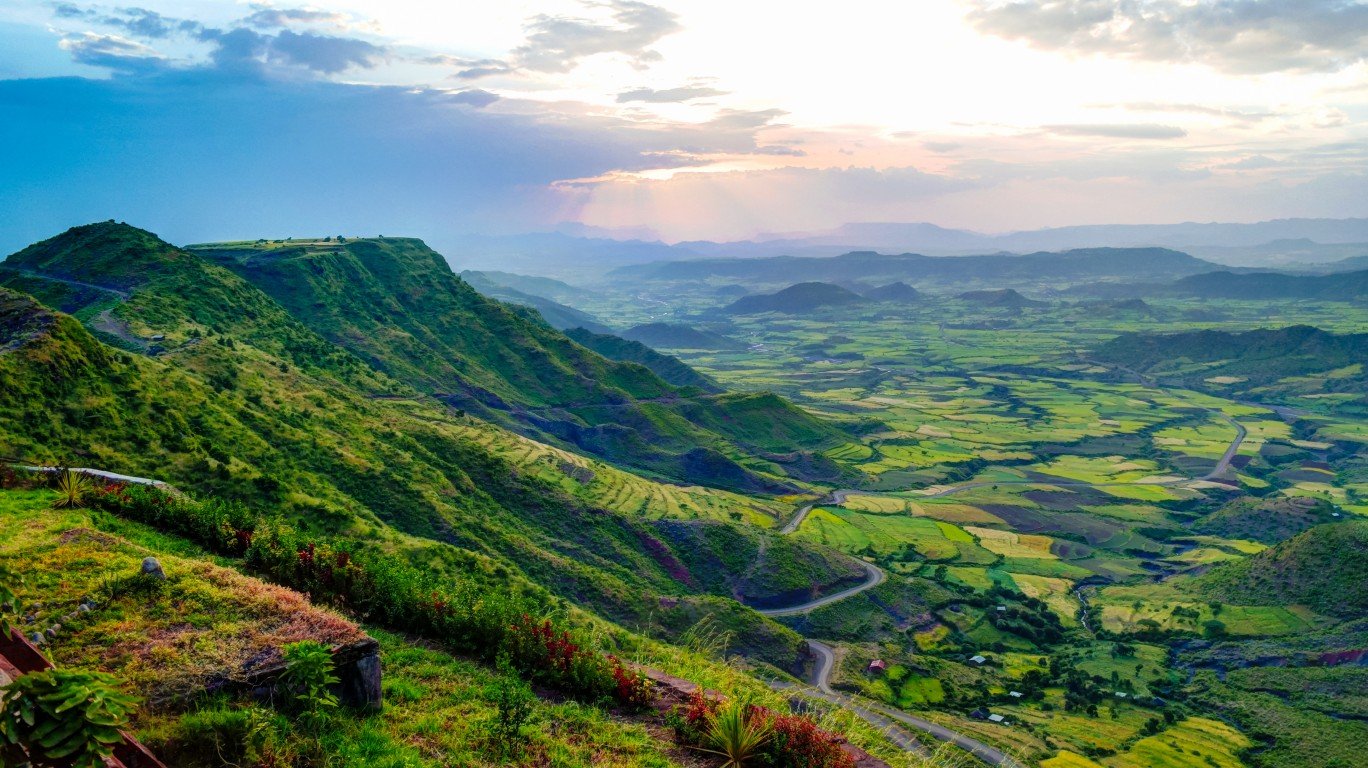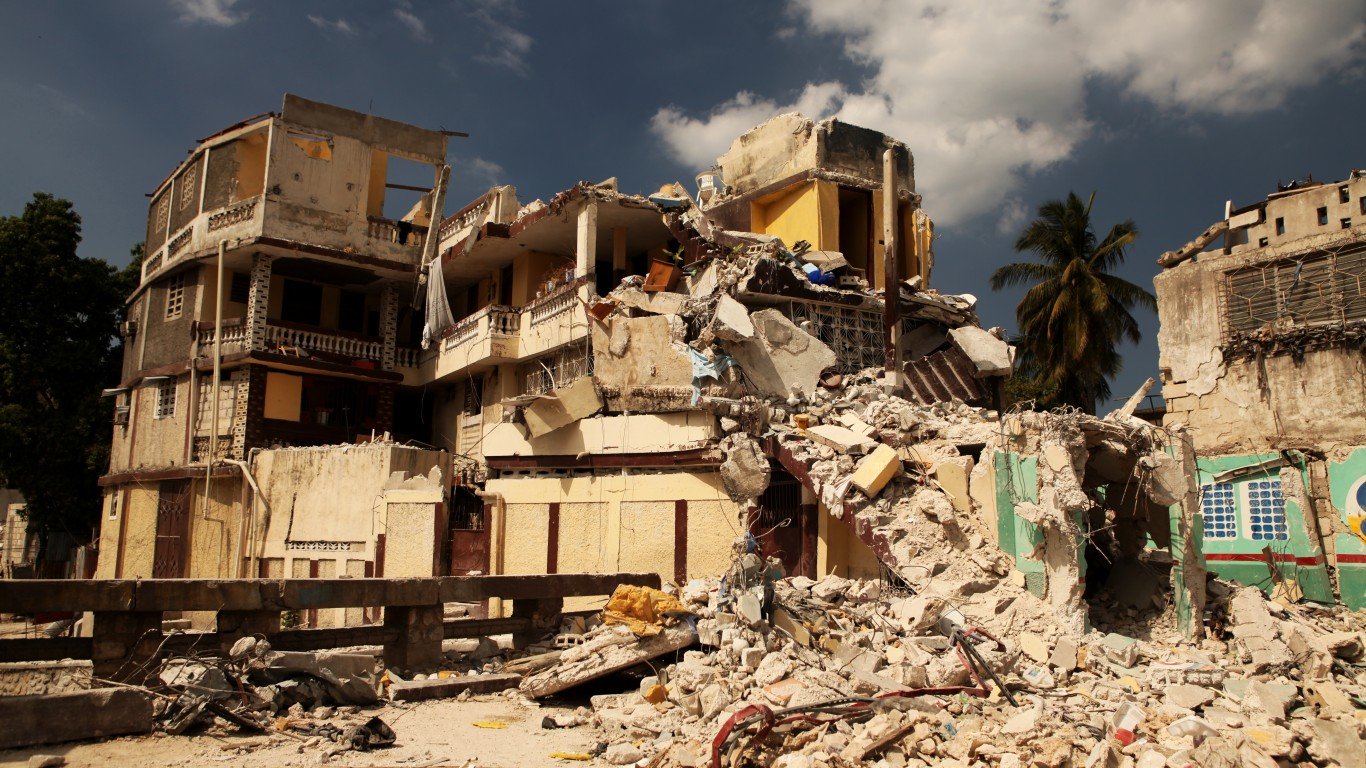
4. Mozambique
> Annual deaths due to natural disaster, 1960-2022: 108.1 per million
> Most common natural disaster: Flood (42 incidents since 1900)
> Deadliest disaster since 1900: 1981 drought (100,000 deaths)
> Total population: 32.2 million
Starting in 1981 through 1985, a severe drought in Mozambique not only led to 100,000 deaths, but significantly decreased crop production. A cholera epidemic spread though several drought-stricken provinces as well.

3. Sudan
> Annual deaths due to natural disaster, 1960-2022: 116.8 per million
> Most common natural disaster: Epidemic (43 incidents since 1900)
> Deadliest disaster since 1900: April 1983 drought (150,000 deaths)
> Total population: 44.9 million
Sudan’s rainy season typically stretches from June to September. But starting in 1980, annual rainfall fell short, leading to drought conditions by mid-1983. Without rain, agricultural outputs decreased by as much as half.

2. Ethiopia
> Annual deaths due to natural disaster, 1960-2022: 118.6 per million
> Most common natural disaster: Flood (58 incidents since 1900)
> Deadliest disaster since 1900: May 1983 drought (300,000 deaths)
> Total population: 117.9 million
Droughts often trigger widespread famine, and in Ethiopia in the early 1980s, lack of rain caused food shortages and hunger in the African nation. Conflicts between warring factions hampered aid efforts at the time.

1. Haiti
> Annual deaths due to natural disaster, 1960-2022: 547.8 per million
> Most common natural disaster: Flood (64 incidents since 1900)
> Deadliest disaster since 1900: January 2010 earthquake (222,570 deaths)
> Total population: 11.5 million
One of the worst natural disasters to hit the Western Hemisphere occured in Haiti in 2010. An earthquake recorded at a 7.0 magnitude was followed by two aftershocks of 5.9 and 5.5 magnitudes. The quake devastated the capital city of Port-au-Prince, with many buildings crumbling due to weak building codes. The quake struck at a time when the country was still struggling to recover from two hurricanes in 2008.





